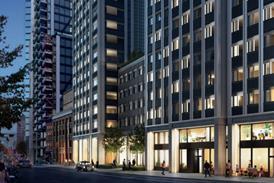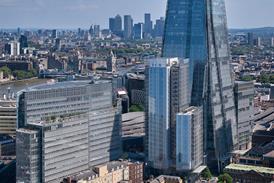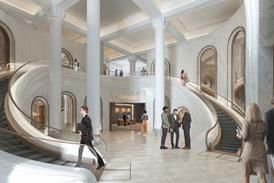- Home
- Intelligence for Architects
- Subscribe
- Jobs
- Events

2025 events calendar Explore now 
Keep up to date
Find out more
- Programmes
- CPD
- More from navigation items
Make net zero buildings the only ones worth building, architects tell COP

’Whole system stacked against doing the right thing’
We must stop fetishising shiny new developments and instead demand regulation to make it harder to build “bad buildings”, architects and built environment specialists have told COP26.
Financial incentives including changes to taxation, mandatory whole-life carbon assessments, a presumption in favour of using bio-materials and not digging deep foundations and radical cross-industry collaboration were among the changes required, the event hosted by the World Business Council for Sustainable Development (WBCSD) heard.
The easiest option for a new building should always be the net zero one – but that is still not the case, said Victoria Burrows, a director at the World Green Building Council.
“The breakthrough moment we need to get to is how do we make it much harder to build bad buildings?” she asked.
…
This content is available to registered users | Already registered?Login here
You are not currently logged in.
To continue reading this story, sign up for free guest access
Existing Subscriber? LOGIN
REGISTER for free access on selected stories and sign up for email alerts. You get:
- Up to the minute architecture news from around the UK
- Breaking, daily and weekly e-newsletters
Subscribe to Building Design and you will benefit from:

- Unlimited news
- Reviews of the latest buildings from all corners of the world
- Technical studies
- Full access to all our online archives
- PLUS you will receive a digital copy of WA100 worth over £45
Subscribe now for unlimited access.






